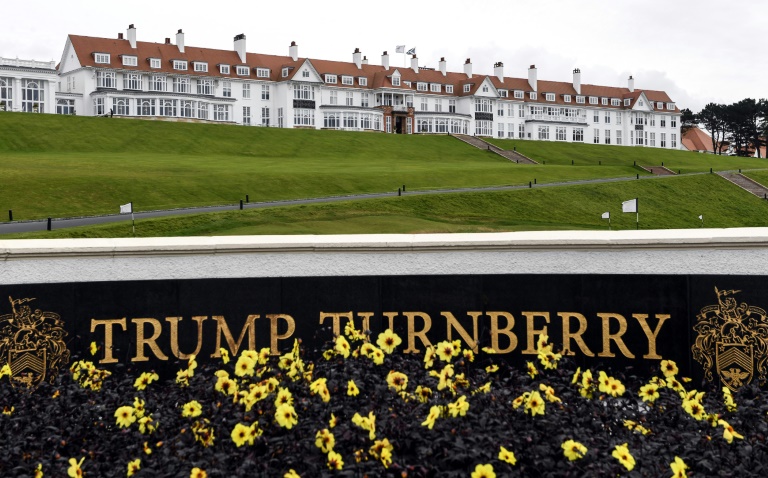(AFP) – He grooved onstage to the Village People, Elvis, and Pavarotti, but one omission from Donald Trump’s campaign soundtrack could have defined his extraordinary third bid for the White House — Frank Sinatra’s “My Way”. The only campaigns that would likely come close to the unconventional Republican tycoon’s 2024 run — for chaos, scandal, and norm breaking — are his own previous tilts at the US presidency.
“Trump’s campaign style is raw, unapologetic, and far from the typical playbook — and that’s exactly why it works,” said Adrienne Uthe, a strategic communications expert and the founder of public relations consultancy Kronus Communications. “He knows his audience and doesn’t try to impress the mainstream. Instead, he doubles down on speaking directly to people who feel unseen by traditional politics. Critics call him reckless, but he has mastered the art of cutting through the noise.”
One of the era’s most polarizing public figures, Trump has only cemented his status as a titan of 21st-century politics, winning a huge mandate to be the first former president to be re-elected since Grover Cleveland 140 years ago. It is a stunning turnaround given that Trump 2.0 isn’t markedly different from the man who left office in disgrace in 2021 after refusing to accept defeat to Joe Biden and inspiring a riot at the Capitol. As commentators praised his latest opponent Kamala Harris for a professional, well-run campaign, Trump was berated for a reversion to undisciplined outbursts during rambling speeches seen as repellent to moderates. Columnists fulminated that he was alienating Hispanics and angering women with rallies that seethed with racially divisive language and crude comments about his women political foes.
His paradoxically goofy photo ops — donning an apron to work the fryer at a McDonald’s or a bright orange safety vest to address reporters from a garbage truck — were met with murmurs of disapproval from his own side and howls of derision from the opposition. What Trump lacks in strategic thinking, he makes up for with an unparalleled gut feeling for what it takes to survive and thrive in the bear pit of Washington politics. He gambled that his multiple criminal cases would only deepen his appeal among his loyal base, embracing the scandal and turning court appearances into media circuses through daily televised press conferences. And it all paid off.
The voting trends moved in his direction in the final weeks of the campaign as he staged one of the most dramatic political comebacks in American history, embraced by what looks like a majority of Americans for the first time. “By refusing to conform, he’s created a brand of authenticity that people connect with, even if they don’t agree with every word he says. For Trump, unconventional isn’t a flaw, it’s his superpower,” said Uthe.
Trump’s checkered history — the impeachments, the indictments, the accusations of authoritarianism — is well documented. Yet he defied pollsters’ predictions of a historically tight election, improving his 2020 performance in almost every demographic and all corners of America, racking up big wins in rural, urban, and suburban districts.
Trump supporters often tell journalists they tolerate his excesses, not because they like the drama but because they had more money to spend when he was in office and because he is still fighting for them now. “Many others hold their noses and support him because they believe he will be better on issues they care about — the economy, immigration, abortion,” said Donald Nieman, a political analyst and professor at Binghamton University in New York state. Trump’s main Republican primary rival Nikki Haley echoed the sentiment, arguing on her SiriusXM show that his policies eclipsed doubts over his personality. “He got through two impeachments, he got through numerous indictments and America still elected him because at the end of the day, they knew what they were getting with Donald Trump,” she said.
Whether he leads from the front or shrewdly moves with the tide, there is little doubt that Trump has rare political instincts. He beat Harris in part because he sensed a rightward realignment of the electorate on immigration, the economy, and all sorts of fronts in the so-called culture wars, particularly transgender issues. Trump’s success, according to political consultant Andrew Koneschusky, relied primarily on an appeal to rudderless young men, exploitation of anger over inflation, the weaponization of race and gender, and the scapegoating of immigrants. “The attraction to Trump isn’t rational, it’s emotional,” said Koneschusky, a former press secretary to outgoing Democratic Senate leader Chuck Schumer. “A lot of the emotions underpinning Trump’s support are negative. Studies show negative emotions are more strongly felt, and Trump is a master at tapping into and manipulating them.”
– Frankie TAGGART
© 2024 AFP




